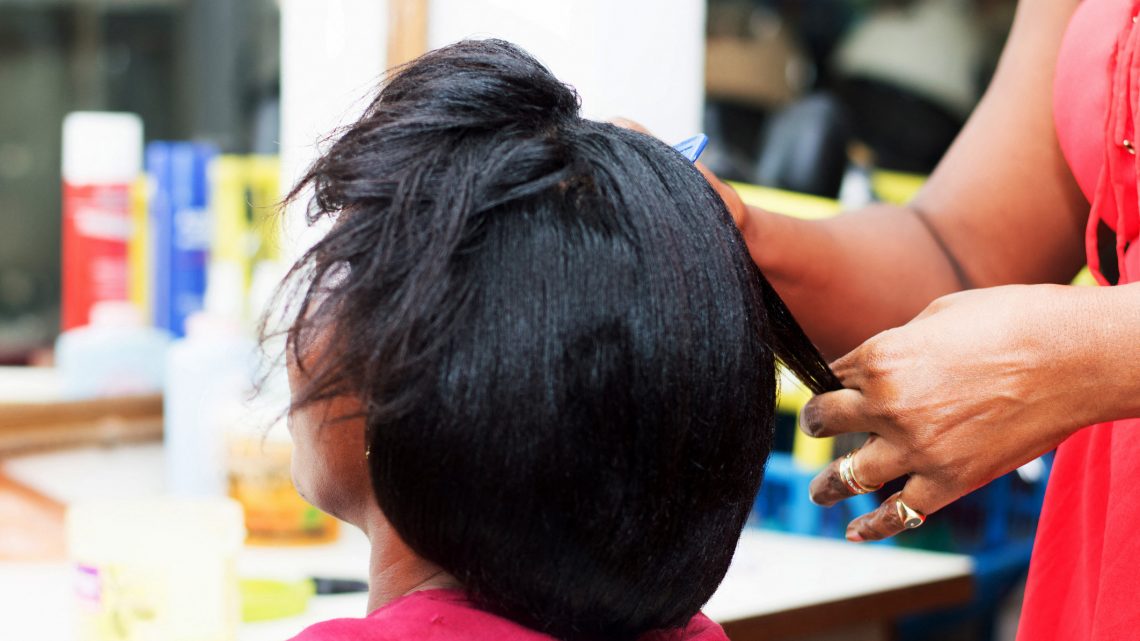
Hair Dyes and Straighteners Linked to Higher Cancer Rates Among Black Women
December 4, 2019New research from the National Institutes of Health (NIH) has found that the use of permanent hair dye and chemical hair straighteners were positively associated with higher rates of breast cancer. That increased association is most pronounced among Black women, most likely due to the fact that the products they typically use contain more hormonally-active compounds that can disrupt endocrine function and lead to the formation of breast cancer cells. On top of that, Black women use these hair products more frequently than women of other races and are therefore further exposed to the harmful chemicals, according to the study, which was published in the International Journal of Cancer on Wednesday.
Between 2003 and 2009, the study's researchers studied health data from 46,709 women between the ages of 35 to 74, all of whom had at least one sister who’d been diagnosed with breast cancer, but who had no history of breast cancer themselves. The study was adjusted for a handful of factors—age, menopausal status, race, ethnicity, education, BMI, smoking history, oral contraceptive use, and age of first birth—and the researchers came to the same conclusion: That women who regularly used permanent hair dye were associated with a greater rate (by 9 percent) of breast cancer, compared to those who didn’t use hair dye.
Additionally, Black women who used permanent hair dye in the year before the study were linked to a 45 percent higher rate of breast cancer, whereas white women were associated with a seven percent greater rate. The more frequently they used hair dye, which the women self-reported via questionnaires and telephone interviews during the study, the greater their rate of breast cancer was: Black women who used permanent dye every five to eight weeks were associated with a 60 percent increased rate of breast cancer, and white women’s association rose by eight percent. Women who used chemical hair straighteners in the year prior were associated with 18 percent higher incidence of breast cancer, and those who used them every five to eight weeks were 31 percent more likely to develop breast cancer. The breast cancer association connected to the straighteners was fairly consistent across races.
The researchers suspect the link between hair dyes and chemical straighteners and an increased association of breast cancer can be traced back to the toxic ingredients in hair products that we inhale and absorb through our skin during use (many hair dyes and straighteners contain more than 5,000 chemicals, some of which are known to induce tumors in rats). The products Black women use more frequently than women of other races contain more endocrine-disrupting chemicals, which may increase the cancer association. Most of these harsh chemicals are not even listed on the product labels, making it nearly impossible for consumers to know exactly what they’re being exposed to.
The vast majority of previous studies looking at the health effects of hair dyes and chemical straighteners have studied white women only, which is a major issue, given the urgent need to understand the racial disparities contributing to breast cancer cases among women of color across the United States. While breast cancer rates are high among all races—one in eight U.S. women are diagnosed in their lifetime—breast cancer incidence in Black women has been increasing in recent years. Black women, who continue to be extremely medically underserved in our health care system writ large, are also more likely to be diagnosed at a later stage and die after diagnosis than white women with breast cancer.
“It is important to include women of all races [in breast cancer studies], because breast cancer risk and mortality tends to differ by race. In the U.S., African American women are more likely to develop more aggressive types of breast cancer,” corresponding author Alexandra White, Ph.D., head of the NIEHS Environment and Cancer Epidemiology Group, told VICE
Until we have even more evidence, the researchers say avoiding these types of hair products is one step people can take to lower their overall risk of breast cancer. “These findings suggest that women should consider their use of hair products in light of the fact that chemicals in hair dye and chemical straighteners may influence their risk of developing breast cancer. Chemical hair products are just one of many factors that may influence a woman’s chances of getting breast cancer,” White said.
Sign up for our newsletter to get the best of VICE delivered to your inbox daily.


